In today’s digital age, our professional and personal lives generate a constant stream of contacts. From colleagues and clients to friends and family, managing this ever-growing network of information can be a daunting task. Enter contact database management software – a powerful solution for organizing, storing, and leveraging your contact information for enhanced communication and productivity.
This comprehensive guide delves into the world of contact database management software (CDMS), exploring its functionalities, benefits, and key considerations for choosing the right solution for your needs. Whether you’re a solopreneur, a small business owner, or part of a large organization, this article empowers you to navigate the CDMS landscape and find the perfect tool to streamline your contact management.
Unveiling the Powerhouse: What is Contact Database Management Software?
Contact database management software (CDMS) is a specialized application designed to efficiently store, organize, and manage your contact information. It goes beyond simply storing names and numbers, offering a comprehensive suite of features to:
- Centralize Contact Information: CDMS serves as a central repository for all your contacts, eliminating the need for scattered spreadsheets or paper address books.
- Organize and Categorize: Contacts can be categorized by groups, companies, projects, or any other relevant criteria, allowing for easy filtering and searching.
- Store Rich Details: Beyond basic contact details, CDMS allows you to store additional information like notes, birthdays, anniversaries, social media profiles, and even document attachments.
- Simplify Contact Creation and Editing: Adding new contacts or updating existing information becomes a streamlined process with user-friendly interfaces and intuitive workflows.
- Enhance Communication: CDMS integrates with email and calendaring applications, facilitating efficient communication with your contacts directly from within the software.
- Improve Data Accuracy: CDMS features like duplicate detection and data cleansing tools help maintain accurate and up-to-date information within your database.
- Advanced Analytics (Optional): Some CDMS solutions offer advanced analytics capabilities, providing insights into your contact network and communication patterns.
The Tangible Benefits: Why Use a Contact Database Management Software?
Implementing a CDMS solution can significantly improve your contact management efficiency and offer a plethora of benefits:
- Enhanced Productivity: Streamlined contact creation, editing, and search functionalities save valuable time and reduce manual effort.
- Improved Communication: Easy access to accurate contact information fosters seamless communication with colleagues, clients, and other contacts.
- Reduced Errors: Automated data cleansing and duplicate detection features minimize data errors and ensure consistent information across your network.
- Stronger Relationships: Storing Gambia Email List personal details like birthdays or anniversaries allows for more personalized communication, fostering stronger relationships.
- Team Collaboration: Certain CDMS options enable team collaboration on shared contact databases, facilitating seamless information sharing within an organization.
- Data Security: Reputable CDMS solutions prioritize data security, safeguarding your valuable contact information with encryption and access controls.
Choosing the Perfect Fit: Factors to Consider When Selecting a CDMS
With a plethora of CDMS options available, selecting the right software for your needs requires careful consideration. Here are some key factors to ponder:
- Individual vs. Team Needs: Consider if you need a solution for personal use or one that can accommodate team collaboration and shared access.
- Features and Functionality: Evaluate the features offered by different CDMS options, ensuring they meet your specific needs. Basic needs might require simple contact storage, while more complex requirements might necessitate features like advanced filtering, analytics, or integration with other business applications like CRM (Customer Relationship Management) software.
- Budget: CDMS solutions range from free, basic options to feature-rich platforms with subscription fees. Determine your budget and choose a software within your financial constraints.
- Scalability: If you anticipate your contact list growing significantly, consider a CDMS that can scale to accommodate your expanding needs.
- Security: Data security should be a top priority. Choose a CDMS with robust security features like encryption and access controls to protect your valuable contact information.
- Ease of Use: A user-friendly interface is crucial for optimizing the CDMS’s efficiency. Ensure the software is intuitive and easy to navigate.
- Integrations: Consider the software’s ability to integrate with your existing applications like email, calendar, or CRM tools. Seamless integration streamlines workflows and eliminates data silos.
Unveiling the Landscape: Popular Contact Database Management Software Options
The CDMS market offers a diverse range of Demystifying China’s Telephone System A Guide to Area Codes solutions catering to various needs and budgets. Here’s a glimpse into some popular options:
- Free Options:
- HubSpot: HubSpot offers a free CRM solution that includes basic contact management features like contact creation, organization, and email integration.
- Zoho CRM: Similar to HubSpot, Zoho



